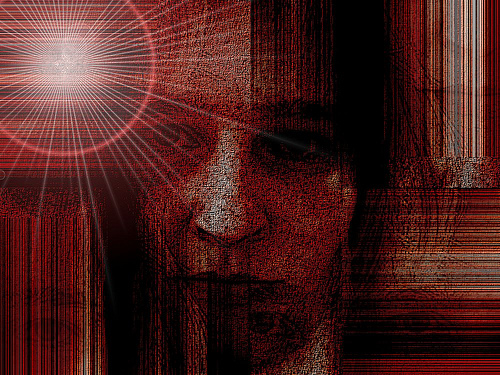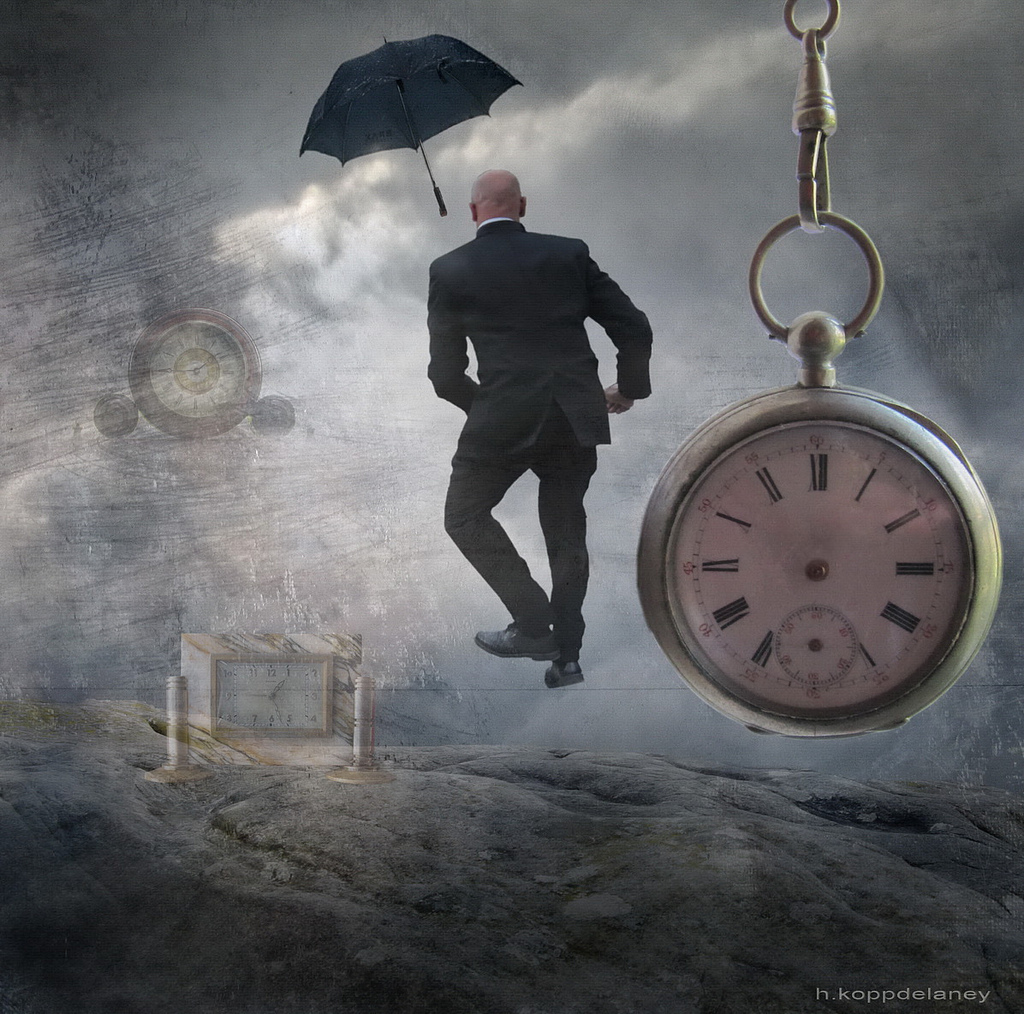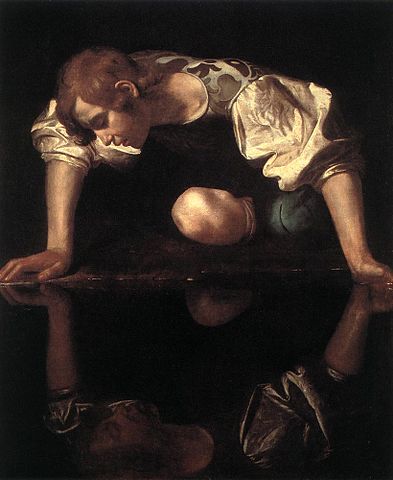Bipolar 1 vs. Bipolar 2: Recognizing the Differences
Please do not use the following article for self-diagnosis or the diagnosis of others. We cannot diagnose ourselves. It is intended instead for information and to provide useful subject matter to discuss with a psychiatrist or therapist.
One of the most common questions I face in my bipolar Meetup group is the difference between bipolar 1 disorder and bipolar 2 disorder. I have written up list of all bipolar symptoms, but I thought I’d write a post that deals with the specific symptoms that differentiate bipolar 1 and bipolar 2, so that there can be a handy resource available for understanding the specific differences.
I won’t mention here all of the symptoms of bipolar disorder. This article only discusses the differences between bipolar 1 and bipolar 2. There are a number of shared criteria that must be met before these differences can come into play, and I discuss those in the list linked to above.
One Manic Episode
According to current diagnostic criteria, what differentiates bipolar 1 and bipolar 2 is whether or not someone has had a single manic episode. In some ways, this is a strange distinction, as some people may have had one manic episode during their entire life, while some may have a few per year. Nonetheless, the reason for the distinction is that even a single manic or mixed episode shows that there is likely a different cause, and therefore, different medications and treatment options are ideal.The question, then, is what differentiates a manic episode from a hypomanic episode. However, one exception must be mentioned before I begin. If a manic episode is brought on by medication, that episode does not count towards a diagnosis of bipolar 1 disorder. In other words, even if someone has had several manic episodes, if all of those episodes were brought on by medication (usually by antidepressants), then that person is not considered to have bipolar 1.
Someone who has had a mixed episode is also considered to have bipolar disorder I. However, since someone is only considered to have a mixed episode if that person also meets all of the criteria of a manic episode, it doesn’t add anything to the diagnosis.
Duration
One difference between manic episodes and hypomanic episodes is their duration. A manic episode must last one week, while a hypomanic episode must last at least four days. Of course, a hypomanic episode may last a week or longer, but if an episode doesn’t last a full week, then it cannot qualify as a manic episode.There is one exception to this, however. I someone is hospitalized, then the duration doesn’t matter, and can be considered manic, regardless of how long it lasts. This is an especially odd criterion, since it would seem that someone who has an episode that lasts one day is having the exact same episode, regardless of whether or not someone notices and takes that person to the hospital (imagine, for instance, someone who lives alone). Nonetheless, if someone is hospitalized, then the duration criterion is waived.
The Three Special Criteria
Let’s look at one of the primary ways manic episodes are differentiated from hypomanic episodes:
The mood disturbance is sufficiently severe to cause marked impairment in occupational functioning or in usual social activities or relationships with others, or to necessitate hospitalization to prevent harm to self or others, or there are psychotic features.
This is really quite interesting. One of the most common misunderstandings of the difference between a manic episode and a hypomanic episode is that a manic episode necessarily includes psychotic symptoms. You’ll notice above that the criterion mentioned above only includes psychotic symptoms as a possible criterion. In fact, if any of the three criteria above are met, it is considered to be a manic episode:
Marked Impairment
This is, unfortunately, a rather vague criterion. The DSM-IV is actually full of these vague criteria, and hopefully the DSM-V will sort out some of this ambiguity. The reference to “marked” doesn’t mean that just any impairment is enough. It must interfere in a significant way, and the degree that will qualify as “marked” may vary from psychiatrist to psychiatrist. Some psychiatrists will be agnostic about whether a given episode meets this criterion, which may mean they end up being agnostic about the type of bipolar disorder someone has.
A hypomanic episode must have “unequivocal” impairment, which is again somewhat ambiguous. The distinction here is between certainty and degree. “Unequivocal” means that there is no doubt as to the impairment, but “marked” means that the impairment is severe.
Necessitating Hospitalization to Avoid Harm
Another common misunderstanding of the distinction between bipolar 1 and bipolar 2 is that any hospitalization implies a manic episode. This is not correct. However, if that hospitalization is done to prevent harm to prevent harm to the patient or other people, then that is considered sufficient to consider it a manic episode (and remember that duration doesn’t matter is someone is hospitalized).This implies that if someone is hospitalized to prevent self-harm (that is, the person is suicidal or self-destructive enough that the person ends up in the hospital), that person has had a manic episode, regardless of whether or not that person had psychotic symptoms.
Psychotic Features
Psychosis is tricky, because there are actually several different types of psychosis. Moreover, the criterion calls for “psychotic features” rather than full-blown psychosis. There are several of these that are common. Remember that any of these are enough for a diagnosis of a manic episode:
- Catatonia: The person stops acting in a marked way.
- Delusions: Delusions are firmly held beliefs that have no evidence and are not commonly held in one’s culture. So, the belief can’t be shaken through counter-evidence, and will not be normally held by that person. The reason for the “culture” reference is that it is assumed that common beliefs that do not have evidence (like superstitions) are caused by the culture rather than a problem in the brain.
- Delusions of Reference: A delusion of reference means that people give special significance to objects. So, for instance, that person may believe that, as Carrie Fisher put it, God is saving them parking spaces. Objects are considered to be put there just for them.
- Paranoia: Paranoia is a specific type of delusion in which we believe that certain people are out to get us, for example. It is a firmly held belief that one is in danger from some person or event.
- Hallucinations: Hallucinations include seeing and hearing things that aren’t really there. Note that hallucinations are different from illusions. An illusion is seeing something that is there in a way that it really is not. So, for instance, synesthesia, which is when our senses get mixed up and we see sounds, for instance, would not be considered a hallucination.
Some of the above differences are open to interpretation. For instance, what makes a belief “firmly held” as opposed to just a passing fantasy? The idea is that the belief isn’t open to evidence and isn’t held as a “perhaps” type of belief. Nonetheless, these criteria, too, are open to interpretation.
Conclusion
One thing you’ll notice is that several of the above symptoms are open to interpretation. While some symptoms are obvious and definitely indicate mania, such as hallucinations or hospitalization to prevent harm, others leave a lot of interpretation in the hands of psychiatrists. This interpretation is especially present in what constitutes “marked” impairment as opposed to “unequivocal” impairment, and in what constitutes a delusion. This is why some people will have their diagnosis changed when they get a new psychiatrist. The new psychiatrist may interpret episodes differently.
Nonetheless, the difference between bipolar 1 and bipolar 2 is a real one, but a distinction on a spectrum. Some people find themselves in the middle of this spectrum with occasionally shifting diagnoses. It is a distinction with a difference, but also a continuum rather than a firm line.













When I requested a letter from my psychiatrist to explain why I needed academic disability for the university I attended, she wrote a brief summary relating symptoms to Bipolar II. When I asked her what distinguished me from 1, I remember she commented that I leaned much more to the “depressive” side than to “manic” – especially in last few years with the psychosocial stressors that have been added to my life. Does this criteria influence the diagnosis of Bipolar 2 over Bipolar 1? I have been hospitalized once (suicide ideation) and been treated by therapists on and off for major depression. I am also Borderline Personality.
Thanks.
Kelly
Hi Kelly,
Yes, people who have bipolar II generally lean more toward depression than to hypomania, though there are some exceptions. It might be better called an “indicator” than a part of the diagnosis, since the actual criterion is a manic episode as mentioned above. By an “indicator,” I mean that it is something a therapist might use to get a general sense of what type you have.
On thing to note is that, as you probably noticed, the current definitions are actually quite broad. The new DSM-V, which is supposed to come out later this year or next, is going to add a lot of “specifiers” to the diagnosis, meaning you won’t just have bipolar I or II, but one of those types with a set of additional characteristics (like rapid-cycling, for example).
Best,
Daniel
I’m in the same position as the previous person who responded. Described as having bipolar type II as I lean to the depressive end of the scale. I have also been treated for depression for 26yrs (incl time with the diagnosis with BP type II) and been described as treatment resistant. Im currently depressed and my psychiatrist is looking at adding a further medication.
The distinction you describe between type I and II is very blurry-but would the diagnosis have a difference in terms of medication being appropriate? Reading the list I feel I could easily fall into either Type I or II.
Thanks Julie
Sorry-I wasn’t clear. Do people with Type I and Type II have different medication needs? Or is it based on an individual basis.
Thanks again Julie
Hi, Julie. There are some differences in medication with BP I and II. However, the differences between people with the same type are often larger than the differences between the types.
I have read that antidepressants are counteractive and even dangerous for people with BPD. What is your position on this Dr. Bader?
Hi Tim. There are a lot of different opinions about the issue of antidepressants and bipolar. I would suggest speaking about the issue with a psychiatrist. If something really isn’t working, there is usually the option of switching physicians.
I am biolar1 I always wondered about that myself. I tnd to lean heavy on the Manic part. I do things like spend money I do not have! Go places do thing I normally wouldn’t do! My best one that I notice is lie about just about everything there is good in my life at the time. Very hurry, hurry about my daily things I do! My manic state usually lasts about 2 to 4 weeks, it is very hard to recover from it after I have to deal with banks,bill colectors that I wrote out checks to in which I had No money to pay them. I am right now going thru that stage of manic! The tuff part of it all is some people know they are in it and have no control over what they do or say. You would think if you know that you were in it there would be something a person could do to remedy the situation. I just can not ever seem to get a grip on stop doing what I do it is very upseting and that also adds to the problem! Thanks for being a sounding board for me..!
You’re welcome, Cindy. You make an interesting point about how sometimes people are aware they’re in the state and other times they don’t.
Thank you for this article. I am recently diagnosed.. it would seem that I lean more towards type II, not sure if there has been much defining gone on into my diagnosis.. this article definitely helps. thank you.
You’re welcome, Jesse.
Are we born bipolar or can we have countermeasures to change the affliction?I mean is it some event or series of events that causes it,such as financial,divorce,etc.?
Hi, Robin. There are some identical twin studies that seem to indicate that it is mostly something we are born with. However, the first onset is usually brought about by something stressful. Given the twin studies, it looks like this is more a question of when, not whether. There are still some countermeasures we can take to manage the condition once it has had its onset.
This is a very interesting article confirming my belief that there is fairly wide grey zone. Personally I still have some doubts about my diagnosis as type II. I am starting to remember manic periods in my life that I never related to my psychiatrist. I’m up to 200 mg of lamotragine in combination with Cipralex…and still cycling. Recently I have been rapid-cycling.
Hi Michael,
It may be worth mentioning those episodes to your psychiatrist, to see what he or she thinks about them. Sometimes they can affect a diagnosis, which could in turn affecting medications, etc.
Dear Dr. Bader,
Thanks again for an insightful and helpful article. I am 52 and 6 years into my acceptance of being diagnosed Bi-Polar II mixed state rapid cycler. It surely explained so much to me about my previous behavior. I actually thought that my manic states were just very good moods. Although even I realized some of my behaviour was ‘over the top’. Lots of spending and sexual activity afterall these ‘good moods’ didn’t come often enough or so I thought. I believe my mom has bi-polar and so that is where I ‘got it’ from. As a kid it was very hard to deal with her moodiness. Sometimes she could be so nice (I imagine during her manic episodes), and then other times she could be so mean. I assume she has suffered and to this day she does not believe anything is wrong with her. Although she is now seeing a psychiatrist and he has prescribed Lamictal for her. That came about because she needed to have some type of psychiatric clearance for one or another of her surgeries she needs.
Anyway I feel that I have been depressed for many years before being diagnosed but back then I wouldn’t have believed it either. It took a suicide attempt and subsequent hospitalization for me to really accept something being ‘wrong’ with me. I still tend to say I ‘have’ bi-polar instead of saying I “am” bi-polar. I have been blessed with a medicine regime, (paxil and abilify), that truly has evened me out. I think I will be on these meds for life. I am not currently in therapy but plan to go back soon.
I recently heard a person say “I used to be bi-polar but God took all of that away”. I realize God is all powerful and all knowing a good and gracious God but really can any of us who have bi-polar just “get over it”?
Thanks for your time.
Hi Christina,
I don’t think people should count on miraculous cures, and I think it’s simply wrong of people to criticize others for not having been miraculously cured. At the end of the day, the best treatment is the one that works, and that can be very different for different people.
I was diagnosed earlier this year, im 40 and have rapidly cycled for years, now i take seroquel (quetiapine) and sertraline and sleep or just sit all day/night, I want to stop the seroquel so i can function, what will happen, i want to live not just exist.
Hi, Karen. Sorry I missed this; I took a long break from the site. If a treatment isn’t working, there is usually the option of switching physicians. I would not suggest going against a current physician’s treatment, though.
I was manic, before I was diagnosed. Now on all these friggin’ pills, I’m depressed…I was once happy, and they took it away. if I quit the meds, will I come back????
thanks
Hi Dori,
I always think it is a good idea to follow the prescriptions of a psychiatrist. If you are feeling depressed on your medication, it would be worth bringing it up with him or her, and perhaps the medication or dosage could be changed. Otherwise, there is usually the option of seeking a different physician.
HI my name i s Carin and I have bi polar II I was diganosed when i was in my early 30S i would like to know if it ever gets easier I am on lithium and many more pills for the bipolar and I really hate having to have the pharmasit look up adverse affects cause by the meds i would love to know when a eposide is coming on so i can put safety messures in place but i dont know when the epaosides are going to happen I have been hospitalized to many times to count and i hate the hospital I wish and i am hoping there are suggestions you may have to help with this sincerely carin
Hi Carin,
In my experience it does get easier, mostly because I’ve gotten better at dealing with the episodes. I’d say the illness itself isn’t getting any better, but my coping mechanisms have. I hope that helps.
Best,
Daniel
Hi, I was diagnosed @ 18 and am now 42 with bp1,PTSD ,ocd I am not medicated.And I have tried all the medications,but was never happy with them.My doctor and mental health nurse are brilliant.I have found that understanding of why I do and why? has helped me to be aware,and therefore work on each trigger,symptom and then behaviour.It is not easy or for the faint hearted but it is possible.But I am 60% better than I ever was.Learning to communicate what I am experiencing as it happens has been a huge step.I also journal everything.To keep myself honest.It has brought about a lot of insight to myself.I wish everyone the best version of themselves and may each day be a little less hard.
Thank you for the really positive comment, Jodie. That’s quite similar to my own experience. So much of recovery is related to insight, recognizing signs, and dealing with the symptoms as they come. I’ve often thought therapy for bipolar is as much about education as anything else, learning, and then coping.
My diagnosis is Bipolar II rapid cycling. Idont think I have hypomania but also mania. My life was changed during crisis of high because of marrying, leaving job, taking my children and moving far away within months, starting freelance wirk, division, .. its a state of 0-3 hours sleep, too much, too chaotic and too fast talking as the people around say to me, Im fast and furious, spend too much money- time after is hard financially, I dont become tired even after a few hours sport, I drive too fast. Years ago mania was a good time for myself during it. Afterwards the great depression came, suicide attempts, no move possible..really bad. The last years it is mixed all the manic stuff plus a unbearable inner restlessness and being driven. I cant stop but I want to because I suffer from running and running and running. Ive been treated since 2007 but I remember these symptoms from my childhood on, my sister says I was this way all my life too. Im 43 now. Treatment hasnt helped. We tried nearly every med for BP in different dosis and combinations. Even high dosed Thyroxine… my doc doesnt want to give me lithium anymore because I attempted suicide with this med and others when started lithium.. Now I take Lamictal and for need Seroquel and Zolpidem. I have no side effects now. But where are the effects? Its a daily struggle. Im in disability.. To come to end- my question: would changing the diagnosis to BP I make any difference? Im tired of hearing the sentence ” ah, you only have BP I, its not too bad and can be treated well..” Does nobody see that it has destroyed my life???
Whatever the diagnosis, bipolar disorder can be extremely difficult to live with. I’m very sorry to hear that others don’t seem to have been responsive to your experience, and I’ve found the same kind of careless response myself. Bipolar II can be more difficult in some ways, because the depressions can be more long lasting and intense, but no matter the diagnosis, there will often be that kind of negative response. I’ve been out of work before because of bipolar disorder, and I have found that there is hope through treatment of gaining the coping mechanisms needed to get through the day without being constantly overwhelmed, but it’s definitely a long struggle.
Hi,
I just read your article . I have been on a search to what’s wrong with me for some time . When I was 23 I was officially diagnosed . I saw 2 doctors who were a team . One said Bipolar the other said ADD. I was placed on Ritalin because the doctor who said ADD some how trumped the other . He also placed me on Prozac . BAD idea as I had a total melt down and threw sugar and flour not to mention lawn chairs at my Ex’s car . That ruined the relationship even though the Prozac caused my melt down . Any way long story short . I moved to another state and am still being treated as ADD but I think they were wrong . While the ADD meds and now Zoloft help it isn’t covering everything … I tried to kill myself 3 nights ago and went into a melt down again . These melt downs last less than a week then I’m back to my productive self . Sometimes I go on what I call these huge “spring cleaning” fits around the house for a week at a time . Other times I can’t get out of my bed for days . Then some how I just “snap” out of it and I’m up again . I just want some stability in my world and what ever it is that is plaguing my life has ruined so many relationships and connections with people that I have become reclusive . I’m NOT a bad person . I help people and I am so caring but this is controlling my life . When its bad I just feel like I want to die to end the pain . I feel like I feel disappointment and hurt 10xs more than the average person . The only word to describe it is SOUL CRUSHING .What should I do to get help ?
I’m sorry that you’re going through such a hard time. I find that being bipolar can just feel overwhelming a lot of the time, and definitely “soul crushing” fits. In terms of looking for help, outside of medicine, therapists are often less concerned with diagnosis and more concerned with your own subjective experience. I’m not sure where you are, but local counselling centers will often have reduced rates based on income, sometimes going down to $0. Stay safe and keep well.